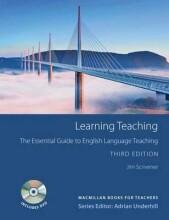Summary: Igo's Ngo's
- This + 400k other summaries
- A unique study and practice tool
- Never study anything twice again
- Get the grades you hope for
- 100% sure, 100% understanding
Read the summary and the most important questions on IGO's NGO's
-
History, Definition and Classification of (International) Non-Governmental Organizations
This is a preview. There are 4 more flashcards available for chapter 23/10/2020
Show more cards here -
What are the three main sectors of the public sphere?
-The PUBLIC SECTOR pertains to states with everything that belongs to it: administration, bureaucracy, governments,ministrie, parliaments, judiciary;
-The PRIVATE SECTOR is the market, which includes everything that makes profit: business, economic enterprises,corporations.
-The THIRD SECTOR is the rest, meaning everything that is not government or business, which are civil society actors. -
What is the role of civil sociecty?
Civil society organizations engage in advocating the public rights and wishes of the people, including but not limited tohealth, environment and economic rights. They fulfill important duties of checks and balances in democracies. They are able to influence government and hold it accountable. -
What is the EU definition of NGOs?
a non-state actor,independent from government,not for profit,acts in the public interest upholds democratic values -
How do we classify NGOs by size and area of activity? Give examples for each category
Largemultinational bodies
Small
(even 1-2 persons),voluntary , part time effort. -
IGO'S NGOS
This is a preview. There are 7 more flashcards available for chapter 23/10/2020
Show more cards here -
What are the 6 factors that lead to more international cooperation?
1. Industrial expansion
2. World economic crisis
3. Development disparities
4. Human rights violations
5. Environmental degradation
6. War and power politics -
What is the League of Nations? Why was it created?
-Problem condition: The devastation ofWWI -Cognitive condition:Realising that war in the age oftechnological advances is disastrous and must be prevented and international institutions can play a critical role-Hegemonic condition: The United States (a great power) pushed for the League’s formation
Created to strengthen international security worldwide-Continuation of Concert of Europe, but nowinstitutionalised (first properIGO ) -
Why did the League of Nations fail?
-Absence of important countries
-The Treaty of Versailles, which the League was meant to protect, was seen as unfair-Self-interest of members dominated.
-Decisions were slow –unanimity required-Sanctions wereineffective and lack of troops to enforce military measures.-1929 Wall Street Crash -
Introduction International Organization
This is a preview. There are 5 more flashcards available for chapter 23/10/2020
Show more cards here -
Who are members of the IGOs?
Members: sovereign states/nation states that join the organization voluntarily. In order to pursue their common interests. -
Mention three types of International Organizations and give an example?
IGOS= UNITED NATIONS, WORLD HEALTH ORGANISATION
INGOS= OXFAM,ICRC
MNCs/TNCs= SHELL -
What is the formal aspect?
The purpose, structure and decision-making procedures included in a charter or treaty. Ex: UN, NATO, OSCE, EU.
- Higher grades + faster learning
- Never study anything twice
- 100% sure, 100% understanding

































